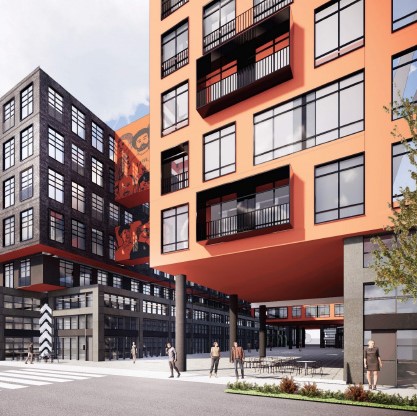Investment Strategies
Cresset Stays With Qualified Opportunity Zone Space - For Now

With all the coverage on the Biden administration's tax hike proposals in areas such as capital gains, one tax-advantaged structured rolled out under the former Trump administration might appear vulnerable. But these zones were created with bi-partisan support, and deliver real results, a firm in the sector says.
Cresset Real Estate Partners, part of US wealth management and investments group Cresset, plans to stay involved in the Qualified Opportunity Zone space for a further two years, confident that these structures won’t be derailed by any tax changes under the Biden administration.
QOZs – portfolios with tax advantages – were launched by the Trump administration more than three years ago. The zones are areas designated as needing an infusion of capital to tackle poverty, crime and other problems. Taxpayers using a QOZ investment may defer tax on eligible capital gains by putting money into a zone and by meeting other tests. A taxpayer must realize capital gain income, invest it in a Qualified Opportunity Fund within 180-days of realizing the gain, and elect to defer the gain on his or her tax return.
The legislation enabling QOZs to take shape had bi-partisan support, so the risks of a reverse to the rules behind them are relatively low, Nicholas Parrish, a partner at Cresset Real Estate Partners, told this publication in an interview. “We think that is going to be very important that we have a program that appeals to both sides of the aisle.”
While the Biden administration is proposing to hike capital gains taxes on high net worth investors, and change other taxes to raise revenue to fund its programs, Parrish doesn’t think QOZs will be vulnerable.
“Our involvement continues. We have long been believers in the value of long-term investment. That is core to our DNA. We are always thinking about tax efficiency and after-tax returns. We continue to see really good continued opportunities,” Parrish said.
The first QOZ investment was deployed in December 2018. At the time of speaking, the firm has 12 QOZ projects under construction or under a letter of intent. So far, Cresset has raised about $750 million of equity. (See a report on one of its ventures here.)
“We will stay in the space for the next two years until we see opportunities tail off or if demand tails off,” Parrish said.
QOZ investments can range from high- to low-risk. “We like to be
fairly conservative in our thinking…we go for high-quality,
attractive prospects. We are building core, Class-A properties,”
he said, noting that the after-tax returns on QOZs of the sort of
investments Cresset has can achieve the low, mid-double digit
returns.
QOZs in many ways are a form of impact investment, Parrish
said.
He was asked about some criticisms that have been made of QOZs investing in high-end real estate and projects that don’t appear – at first sight – to be about alleviating poverty and other problems, but rather benefit high net worth investors. For example, John Harmon, chief executive of the African American Chamber of Commerce of New Jersey, was quoted last year (Bloomberg, September 8, 2020) as saying: “We see development occurring in the urban centers today, but the people who are doing the building and getting the benefits do not look like us.”
Parrish is unimpressed by such arguments.
“Too often people think about real estate that impact must be just about affordable housing,” he said. However, without developments of business of all kinds, neighborhoods’ economic prospects will not improve in the long term, he said.
He gave the example of an “upscale” project in Houston, Texas, that was designed to boost jobs' growth and the whole area, creating an ecosystem of bars, restaurants, amenities and places for people to enjoy, as well as various forms of housing.
“The economic effect it is having is powerful,” Parrish said.
With investments such as in QOZs, the process of putting money to work has been affected, like everything else, by the pandemic.
The Cresset team was fortunate in that many of the projects got started before the pandemic, Parrish said. “We will be delivering projects into the [post-pandemic] recovery. People want to live and work in safer buildings,” he said.
Dozens of QOZ funds have been launched; readers can scan some of them via websites such as www.opportunitydb.com, for example. That site lists funds with names such as The Berenda Opportunity Fund (run by William B Pitman); Fundrise Opportunity Fund (Fundrise Advisors); Palace Way Fund (Palace Way Management LLC); Affordable Housing Opportunity Fund (LIHTC Development), and HeroHomes.com Opportunity Zone Fund I. There are 8,764 opportunity zones in the US. The site says that $6.1 trillion of unrealized capital gains is eligible for QOZ investment and tax treatment. Officials have claimed that up to $100 billion will flow to QOZs. See an example of another QOZ business here.